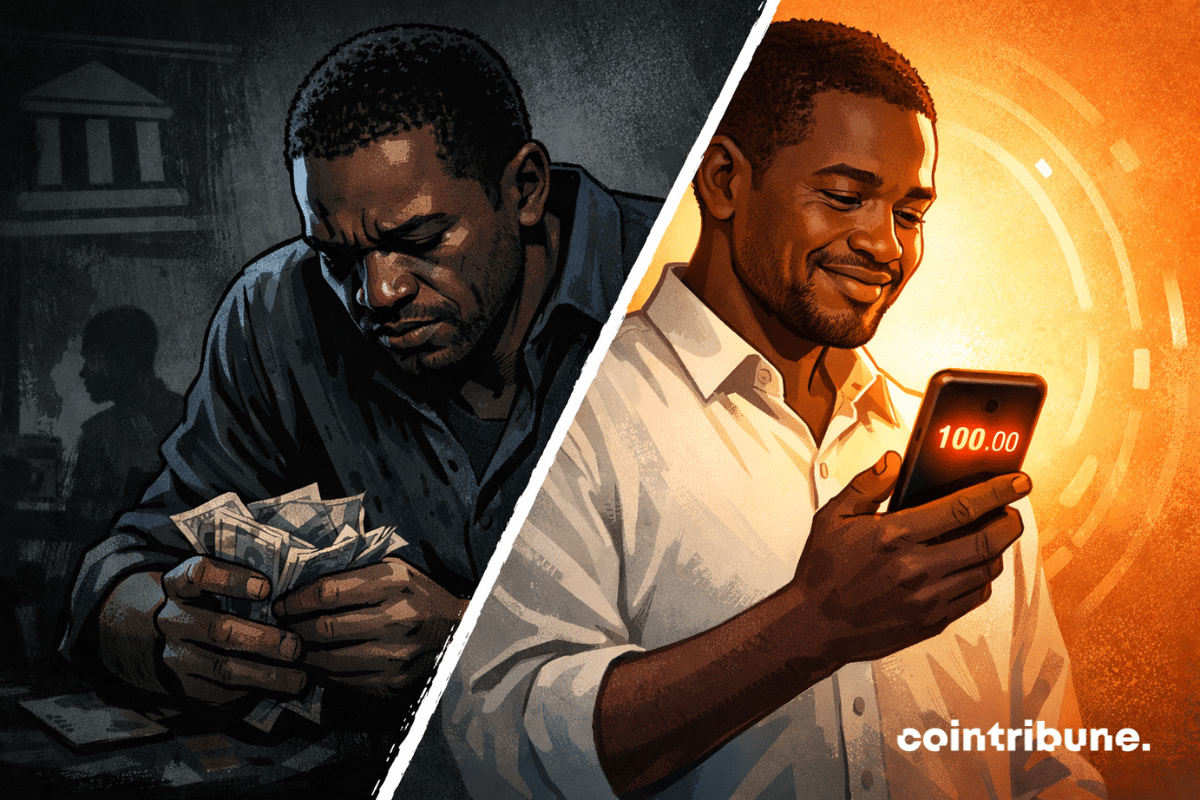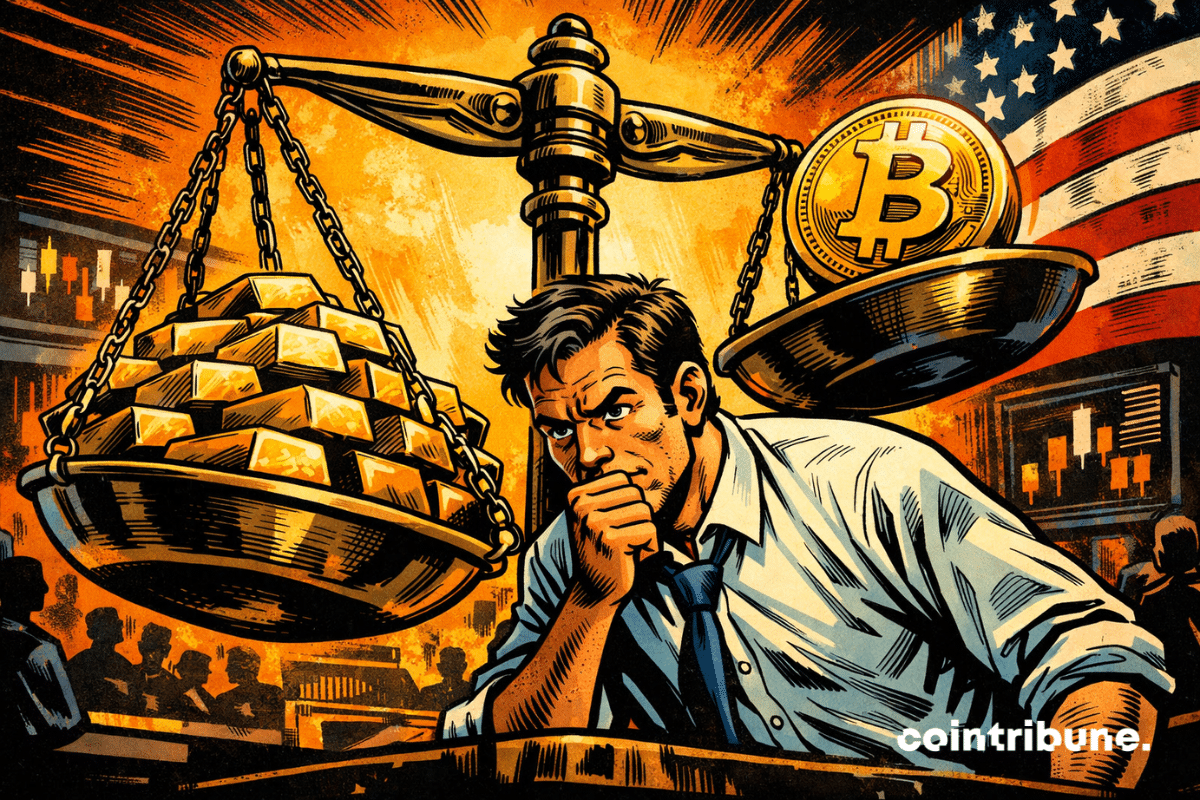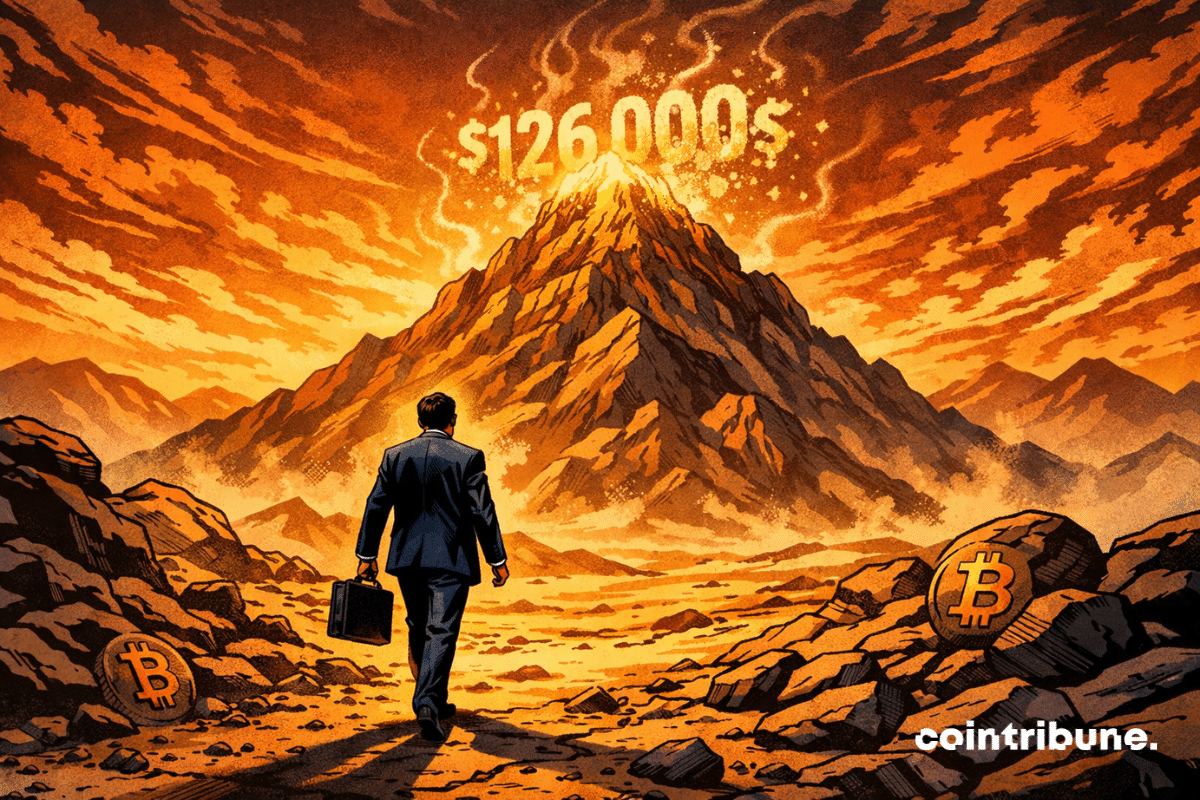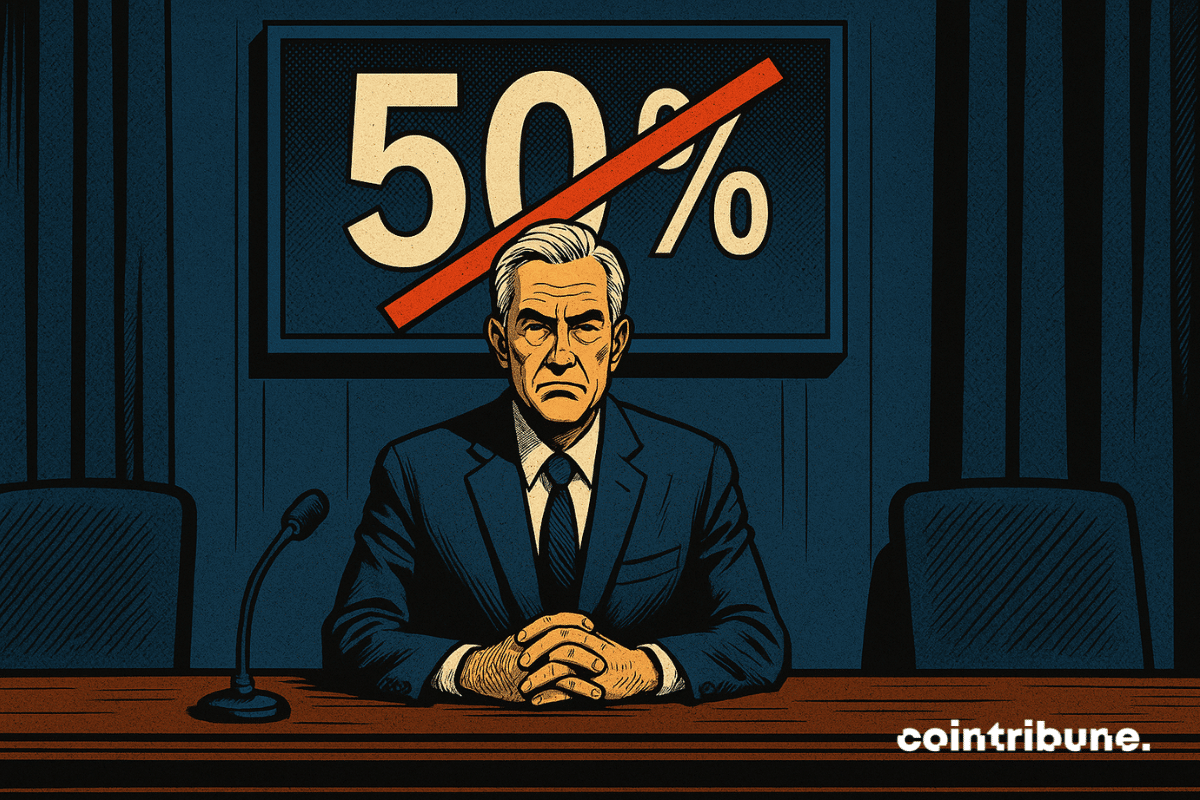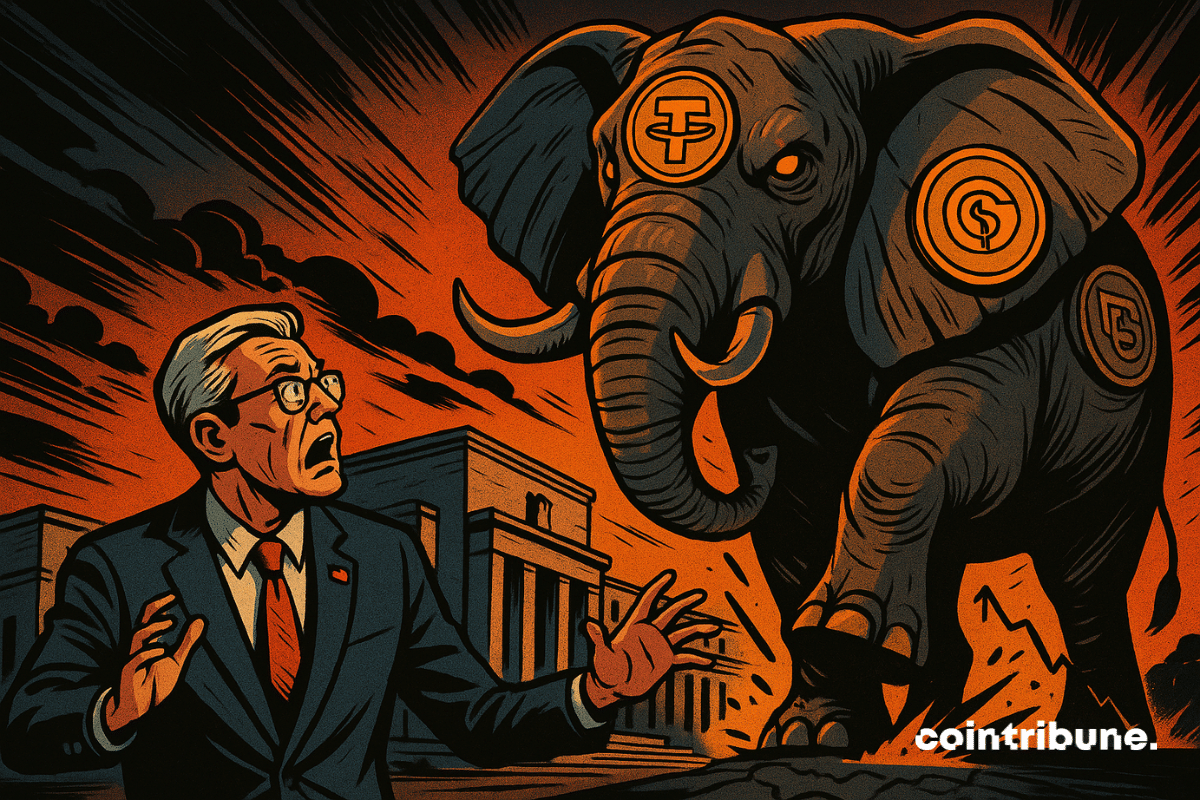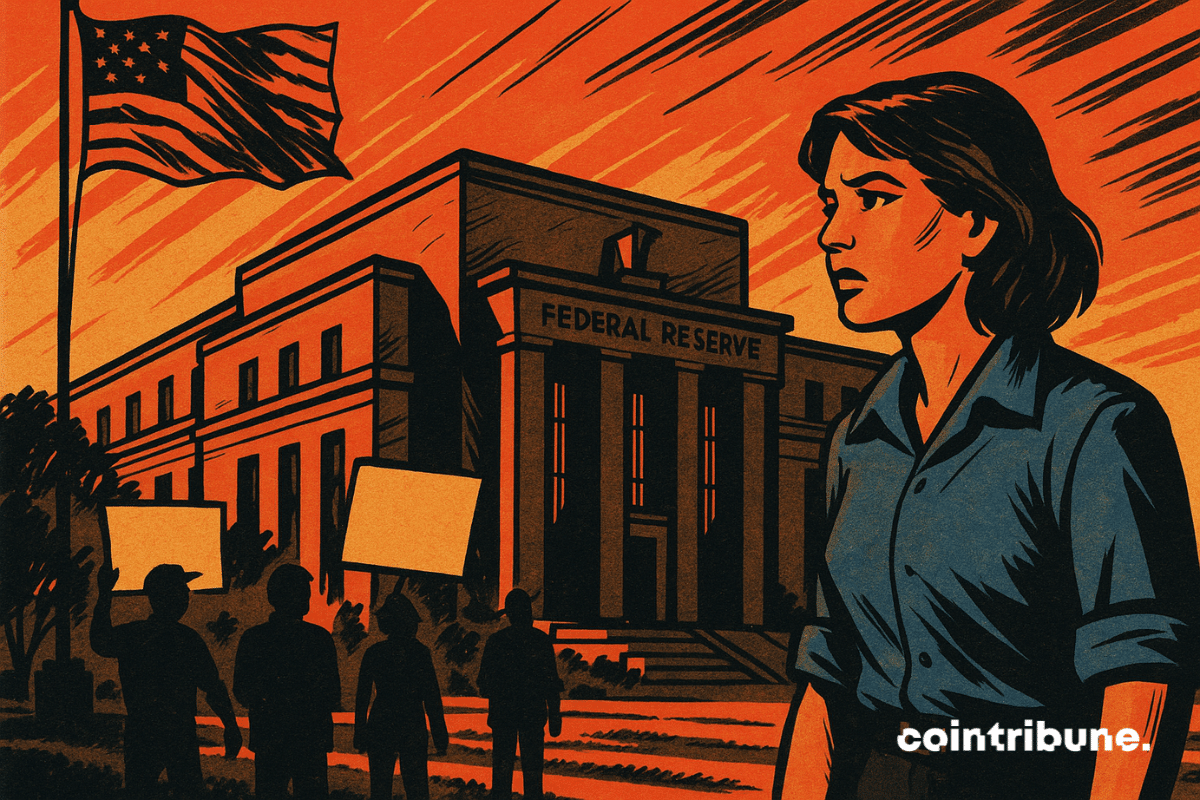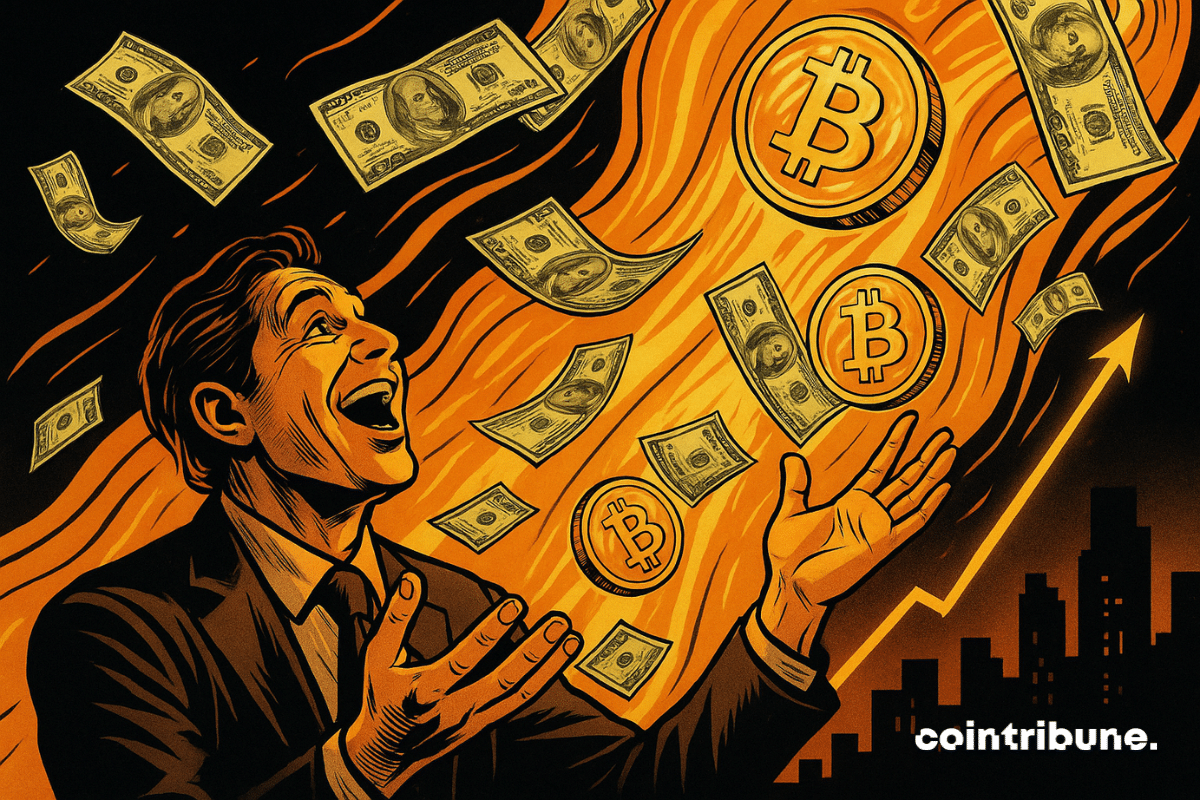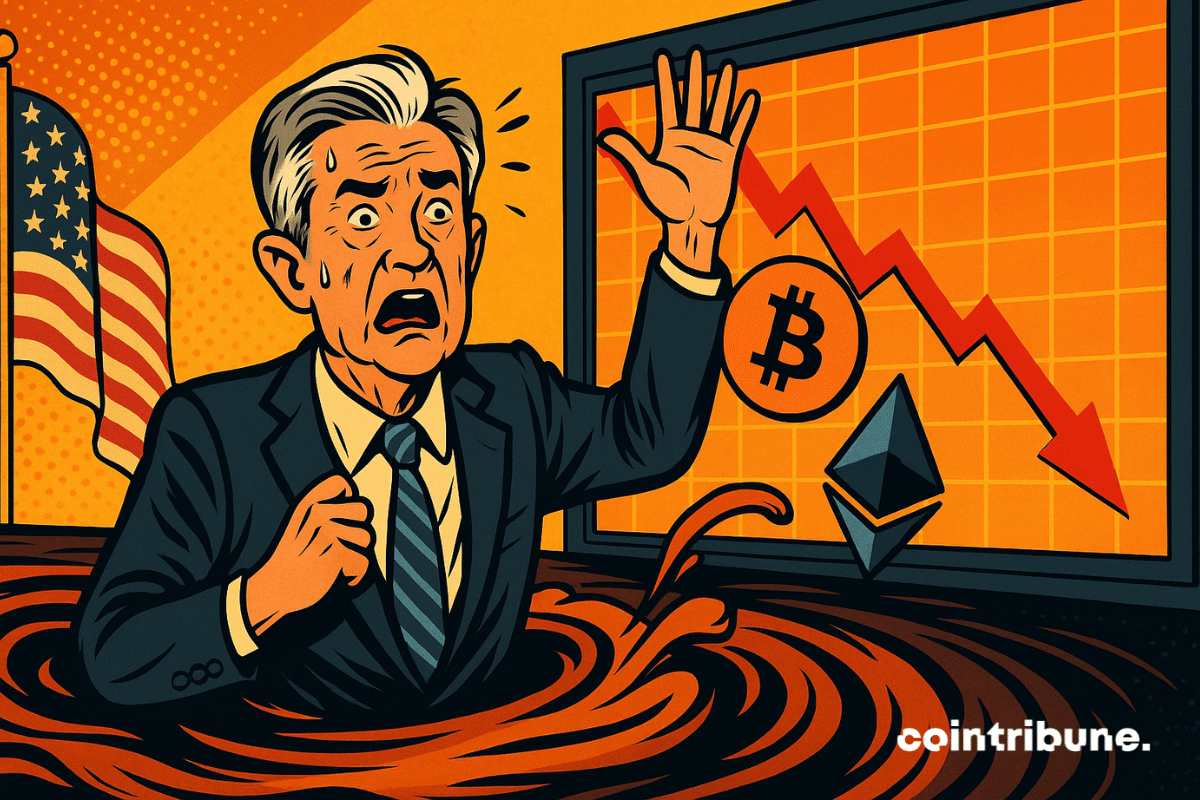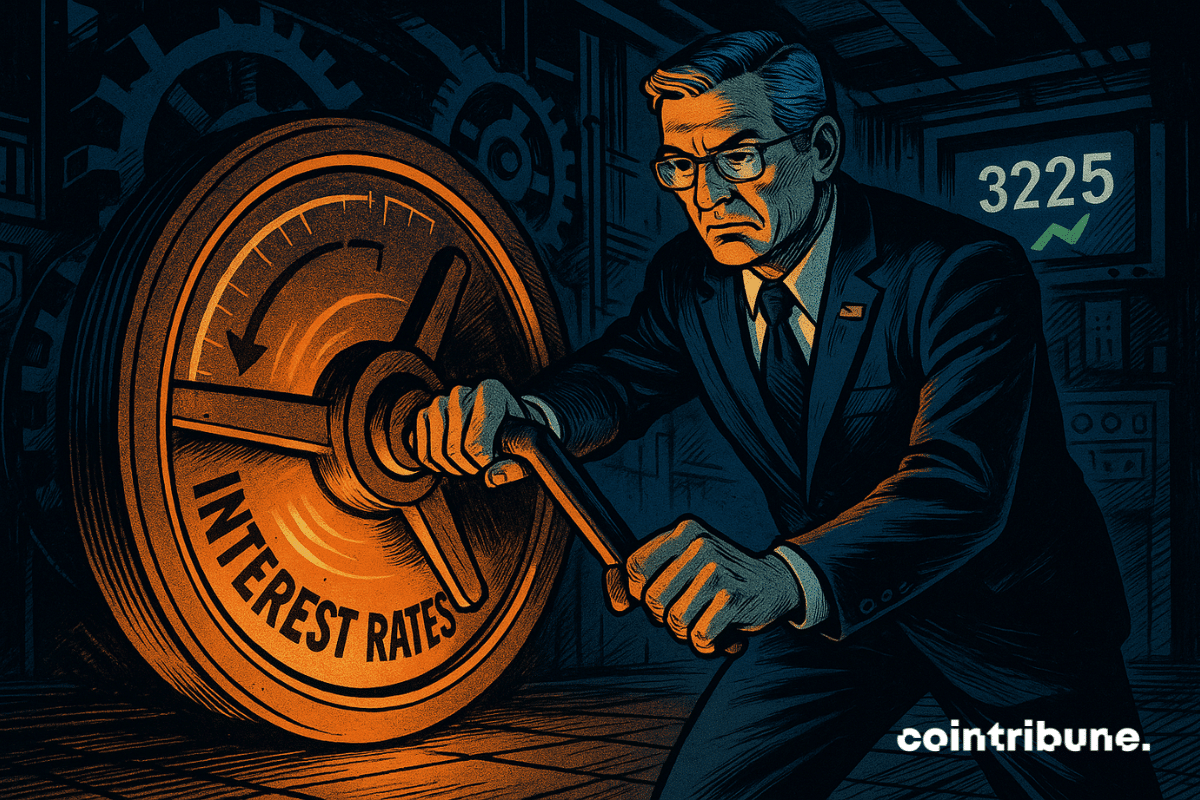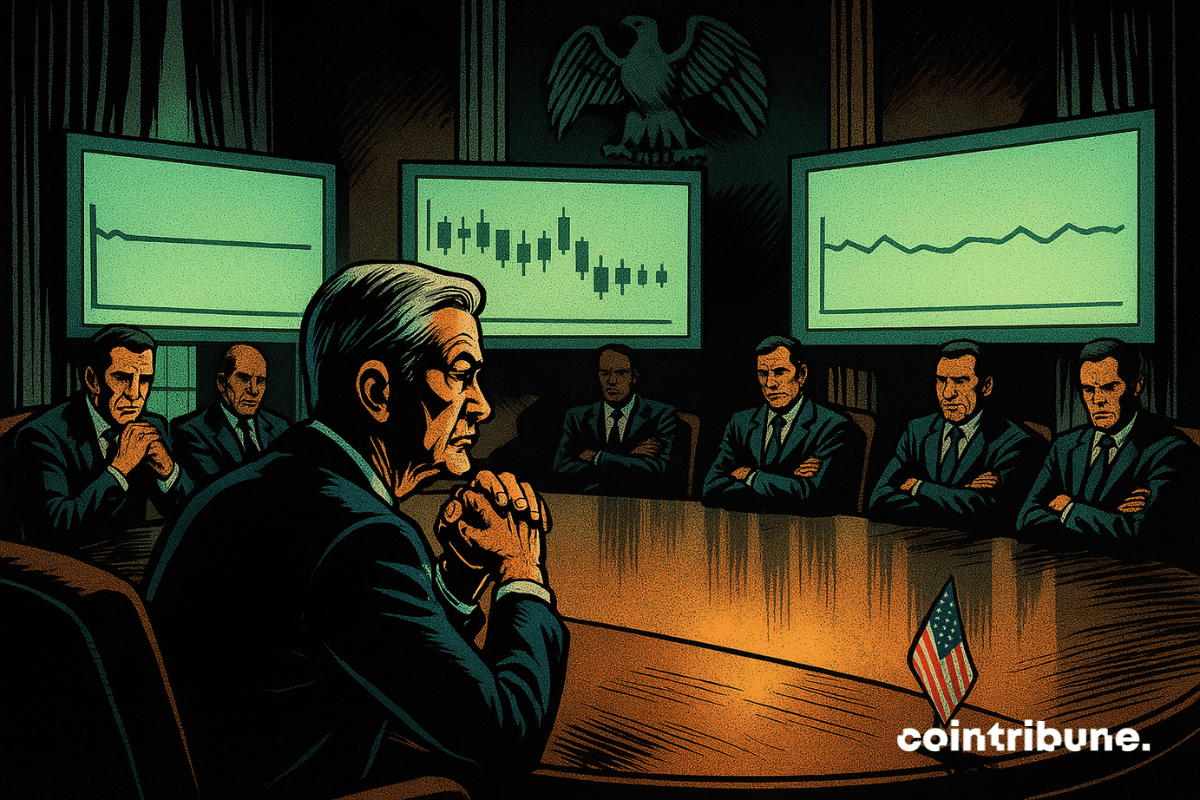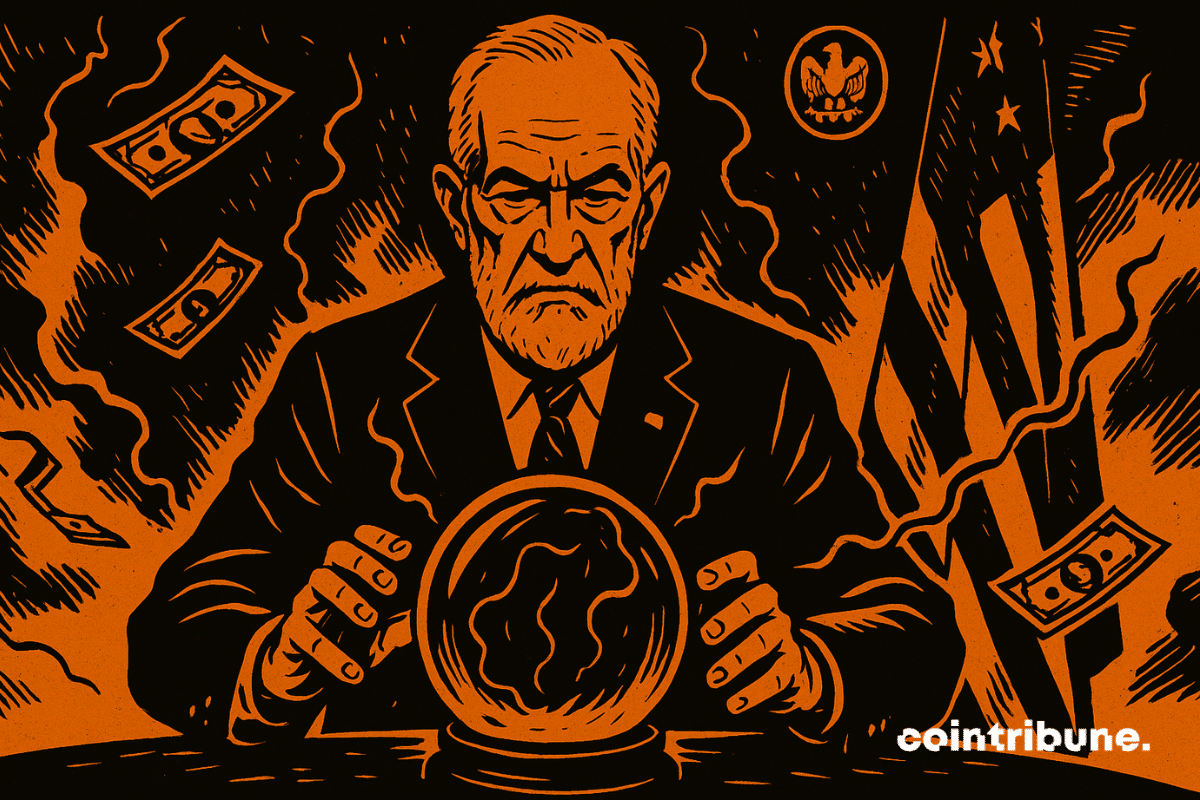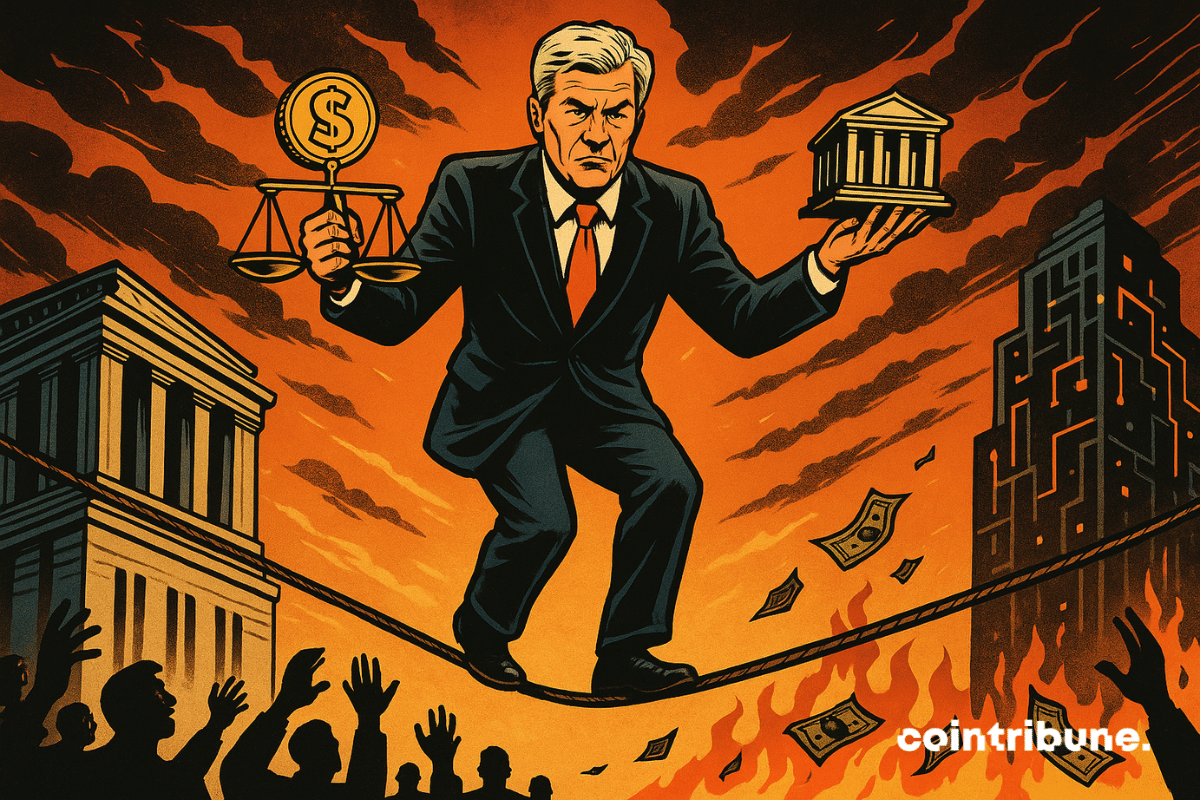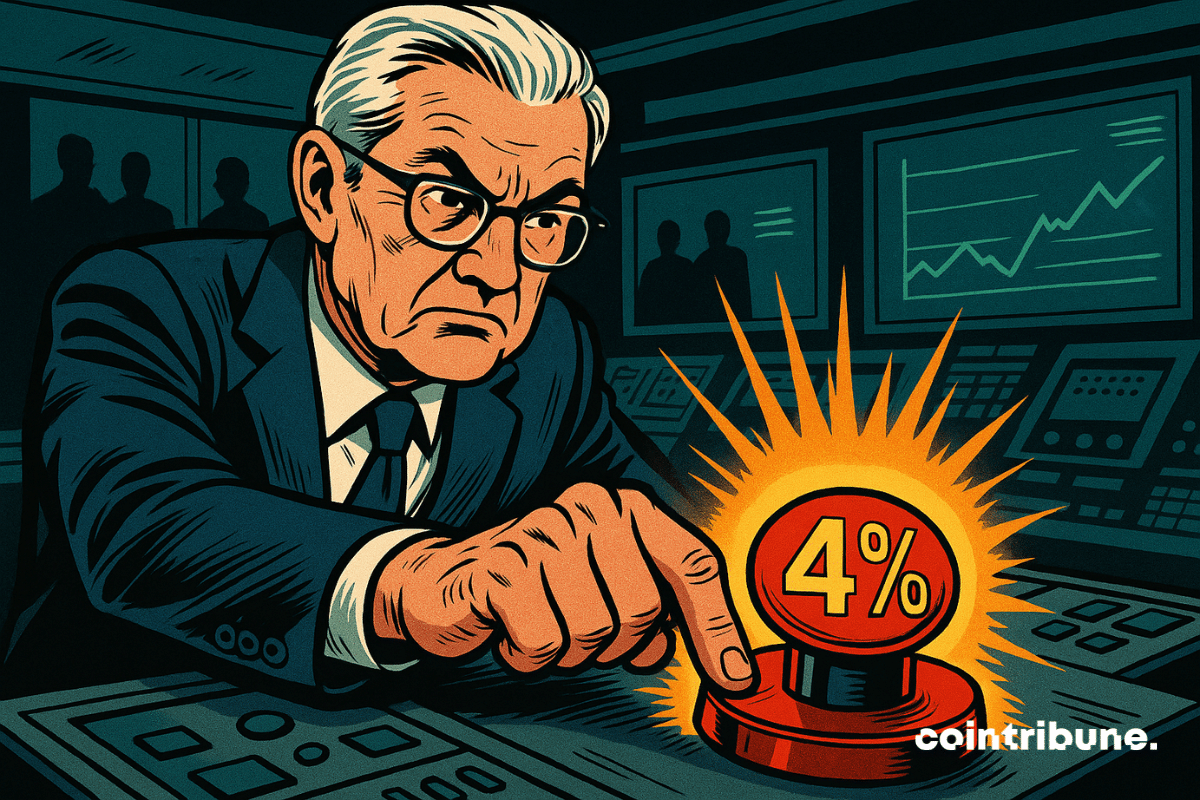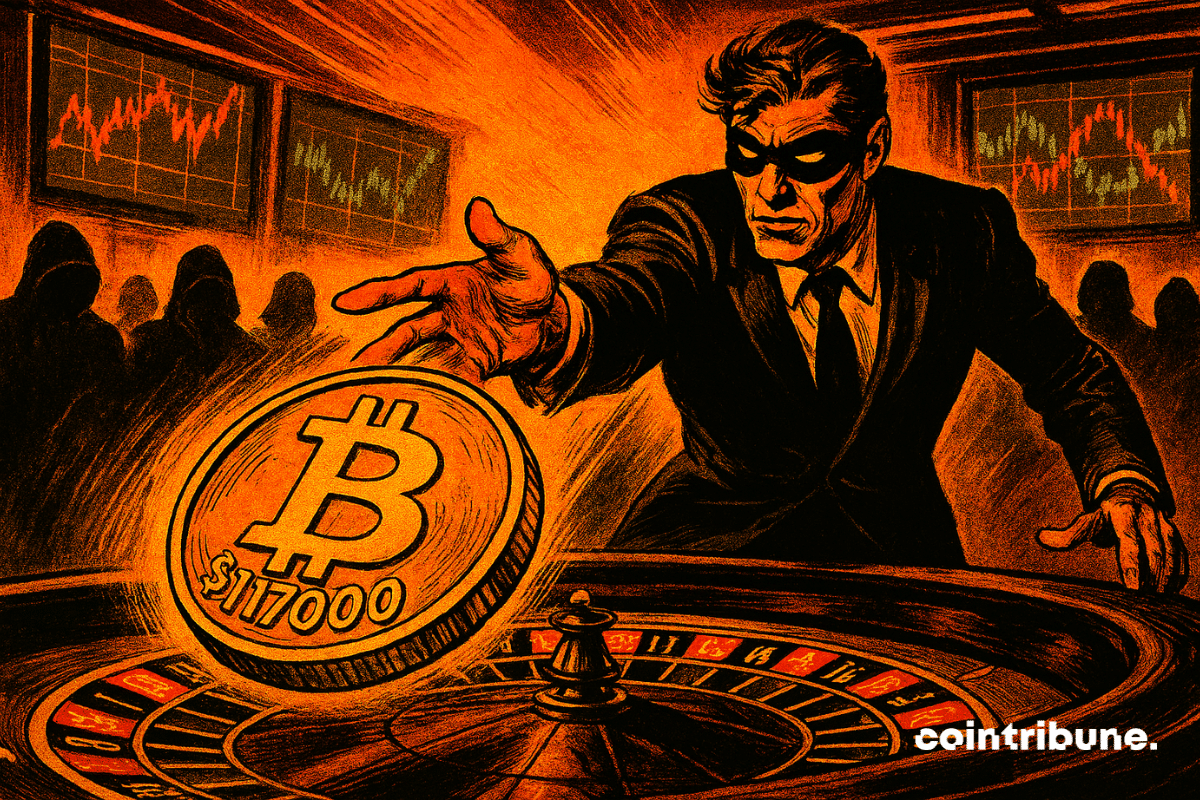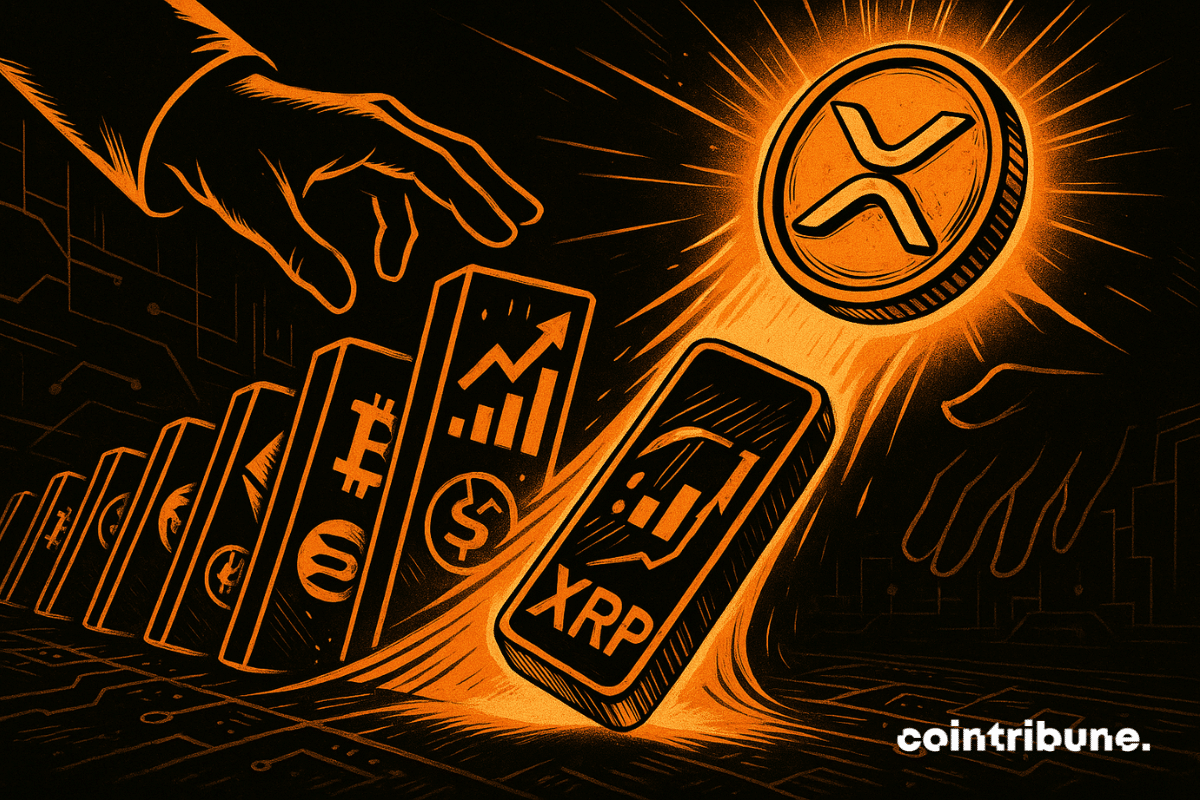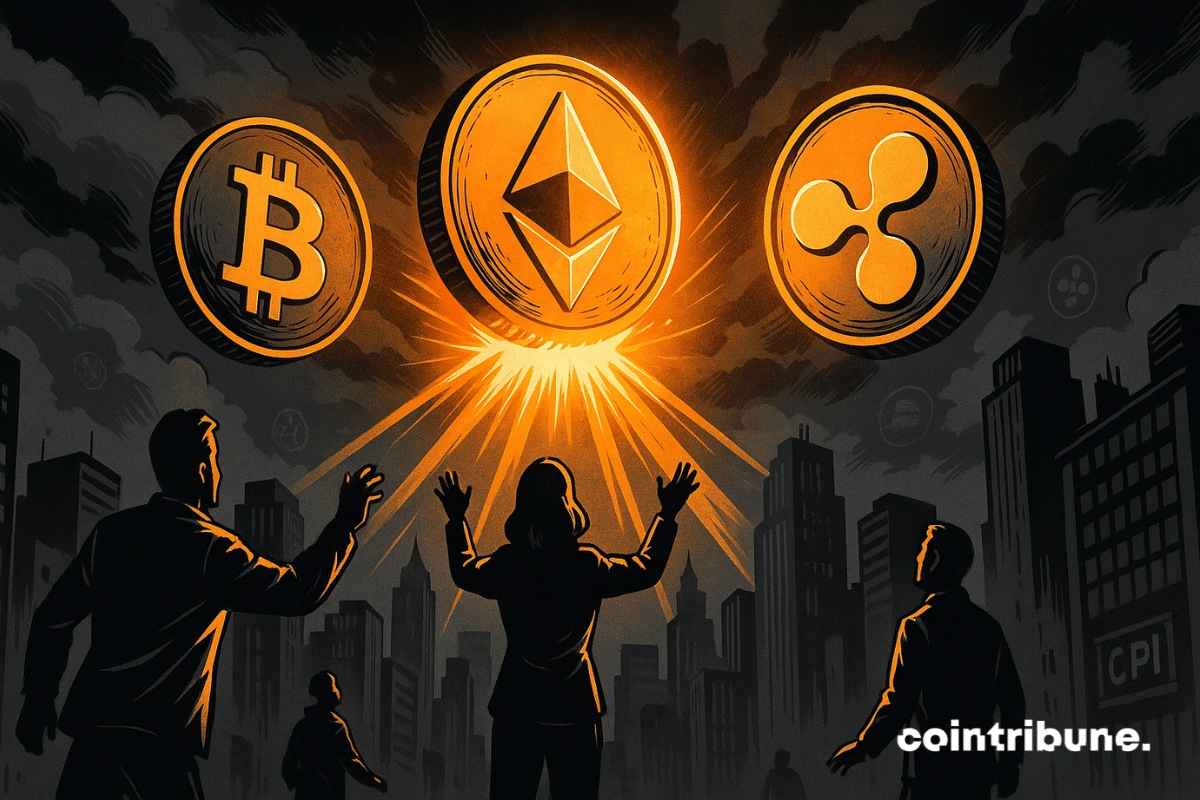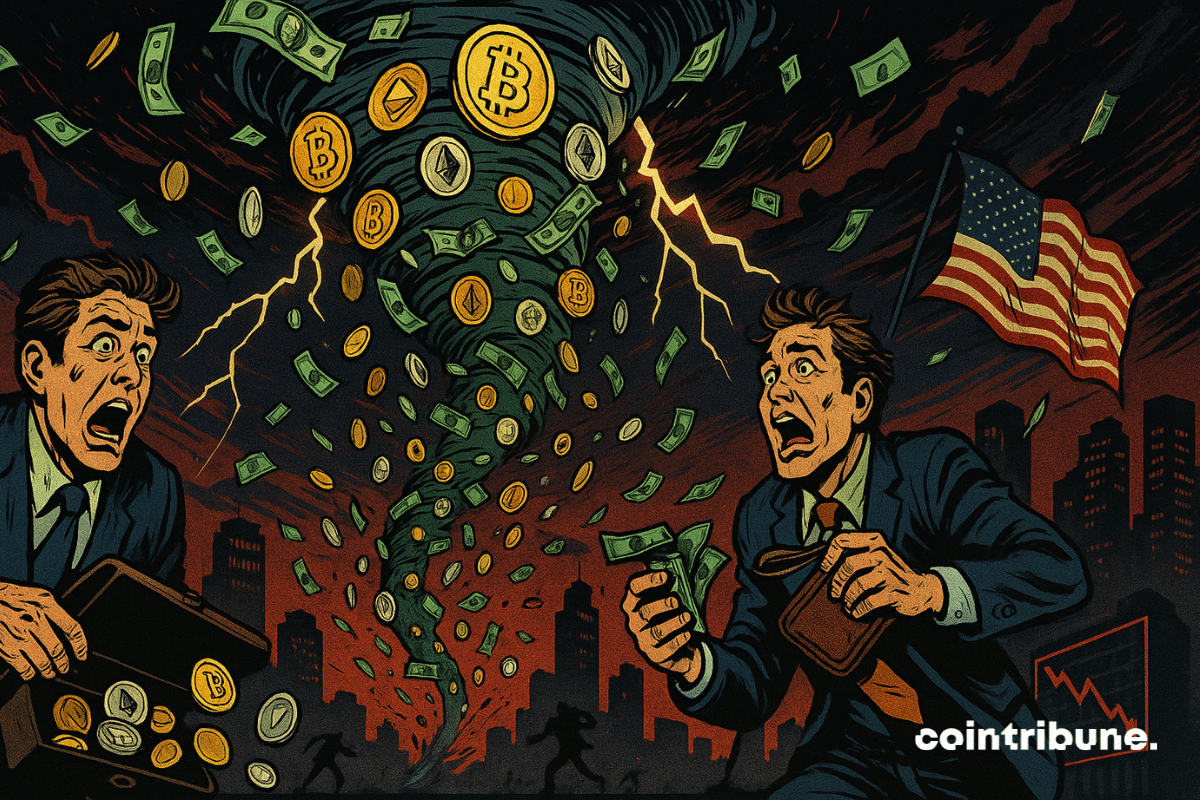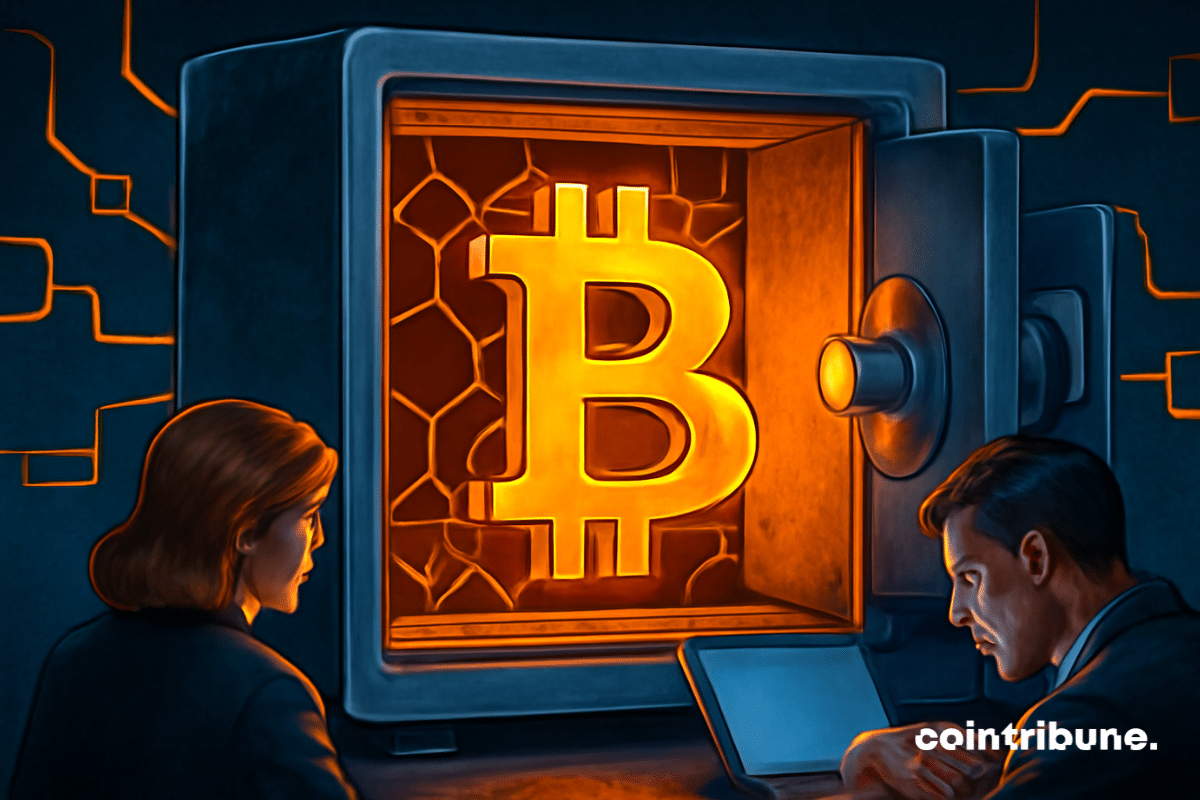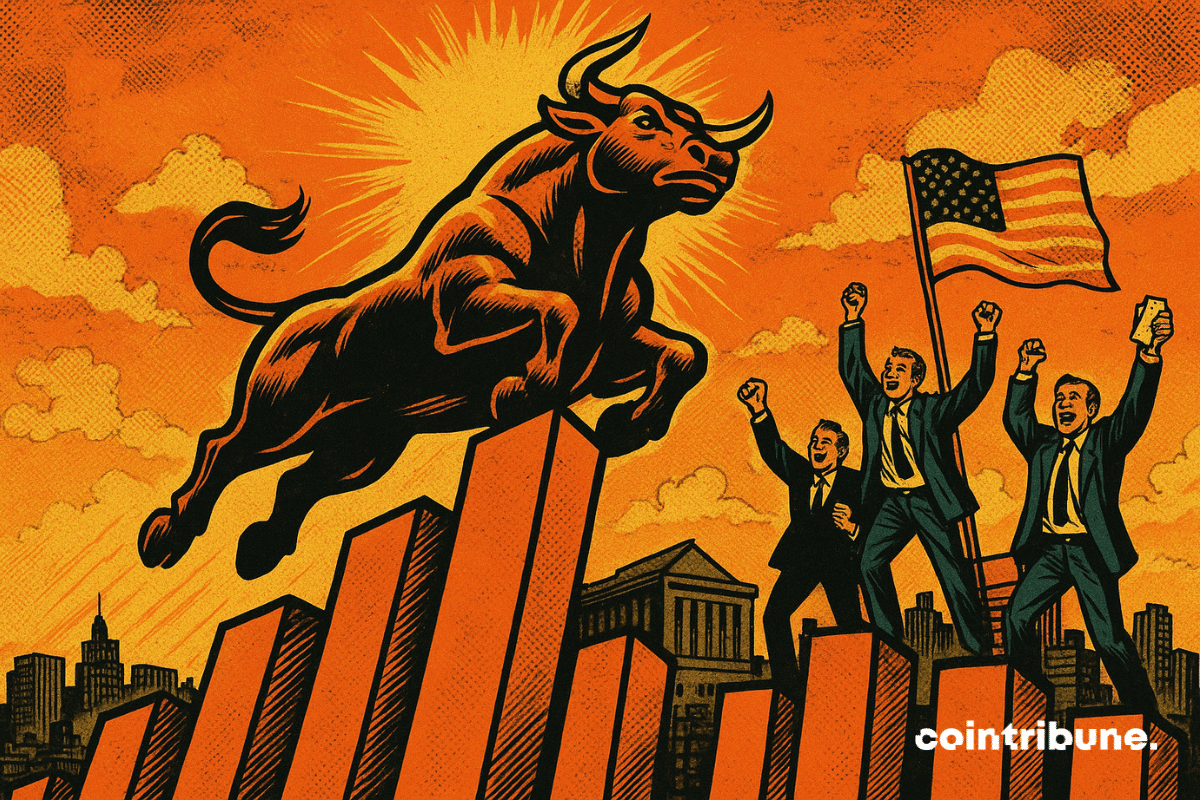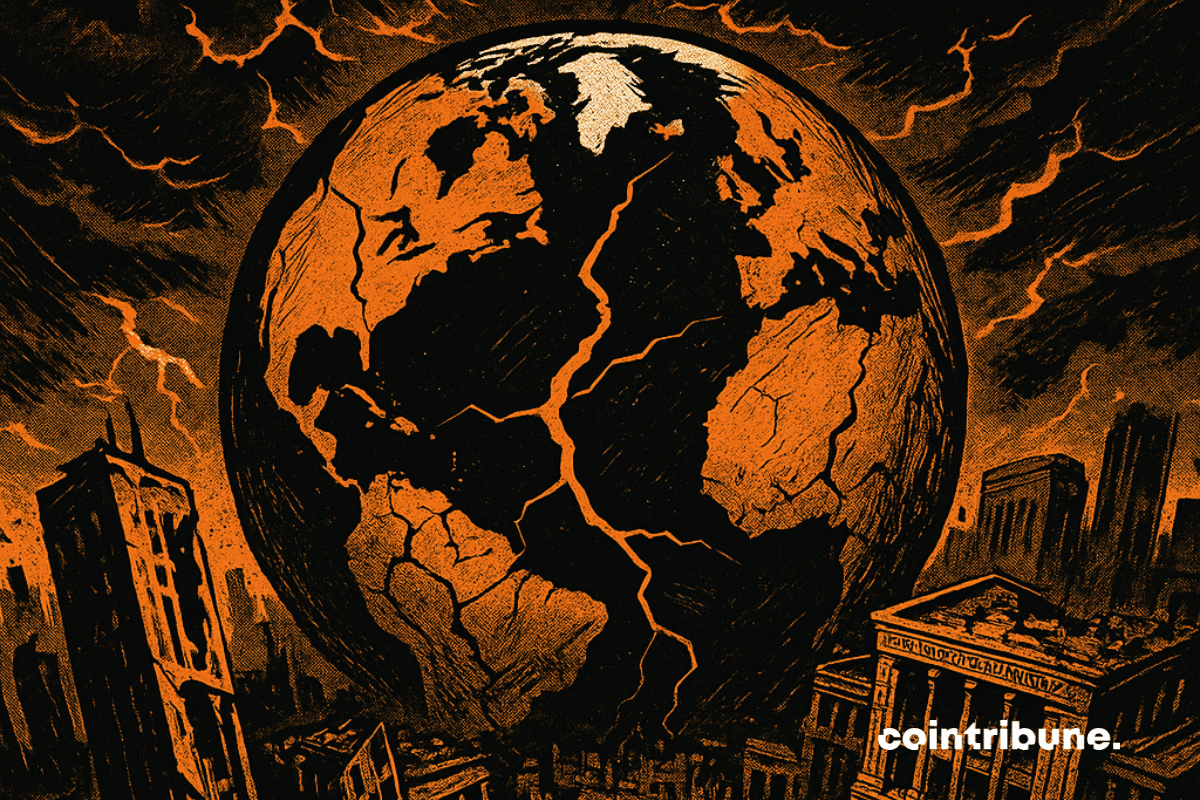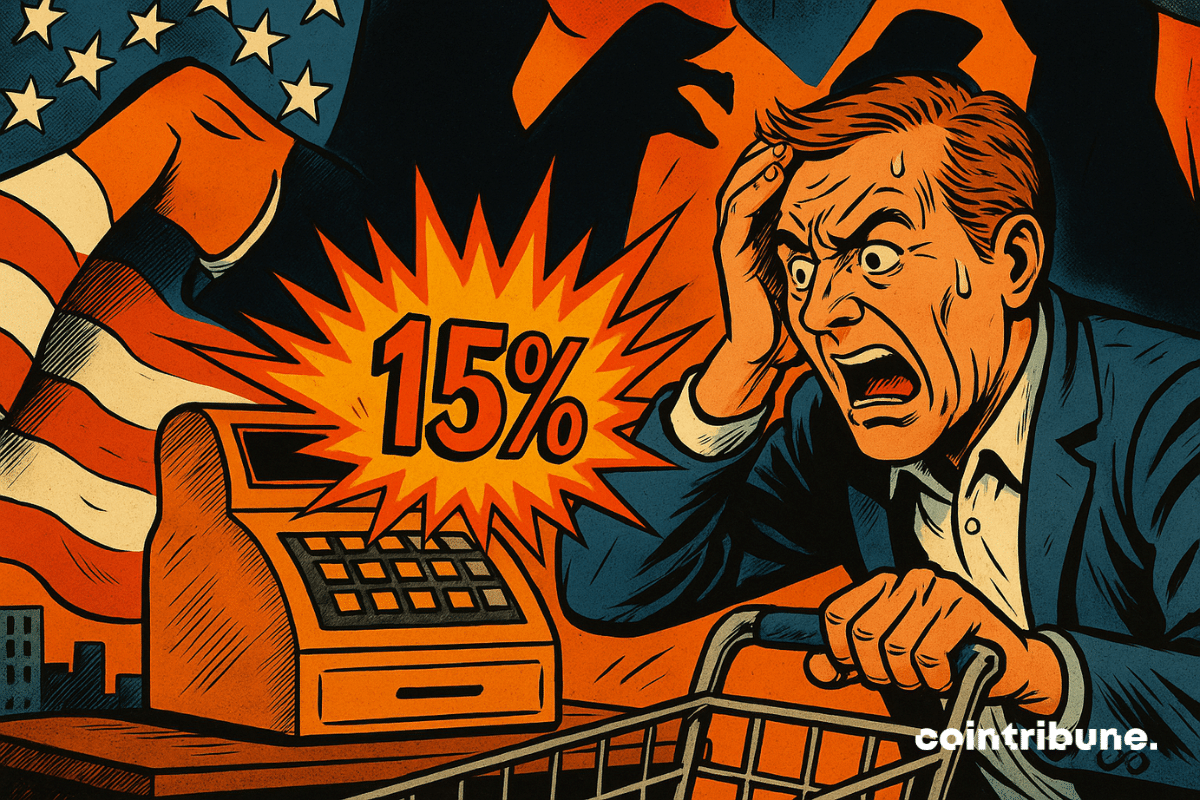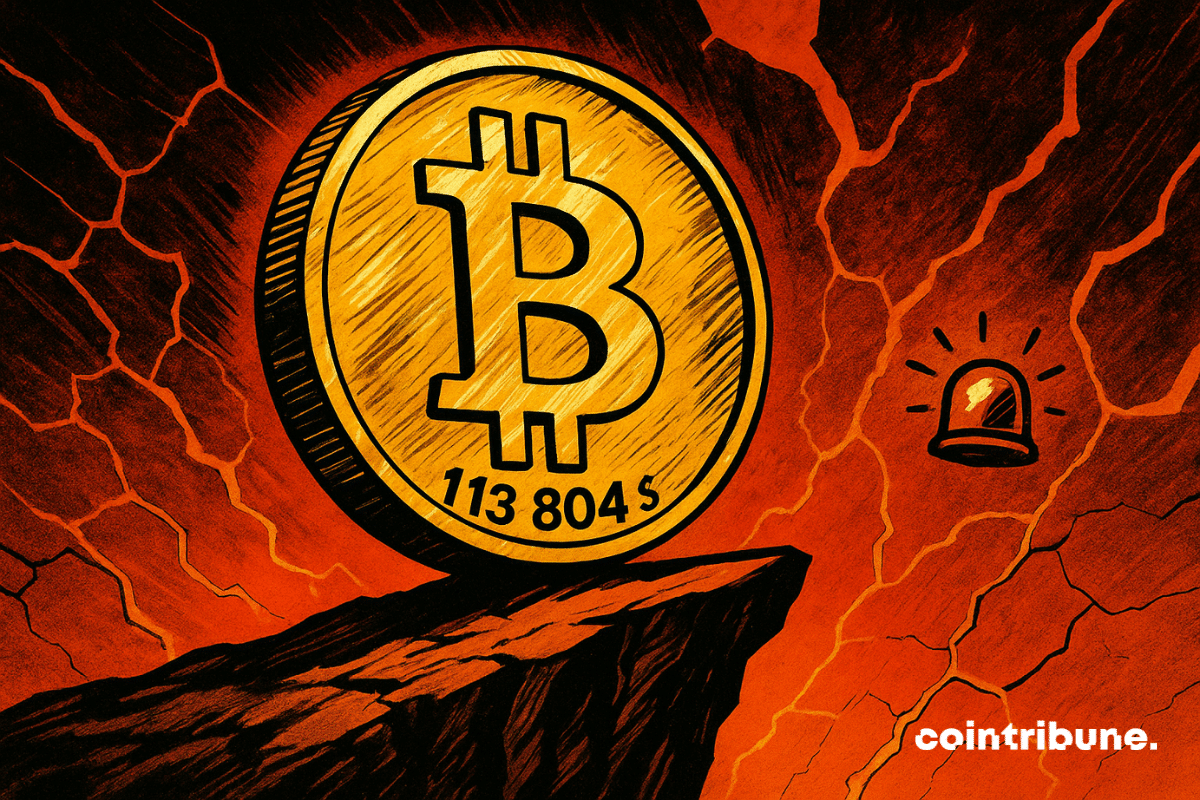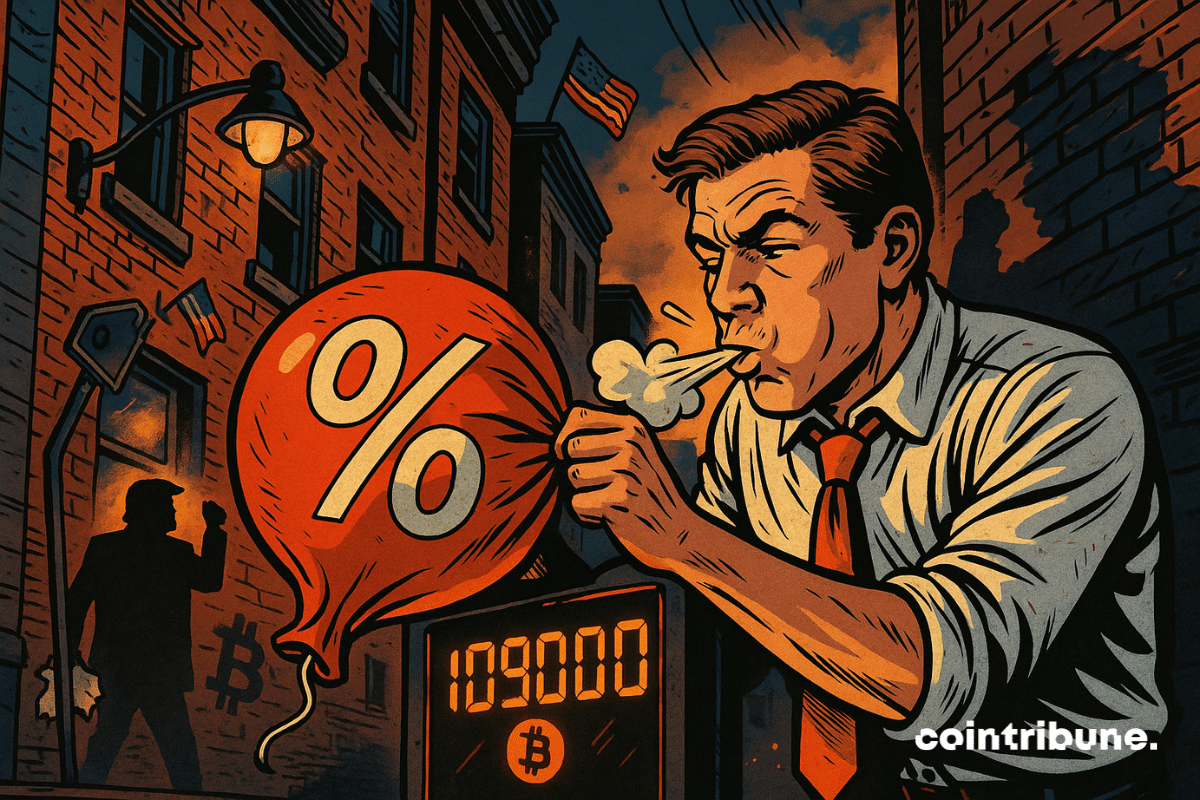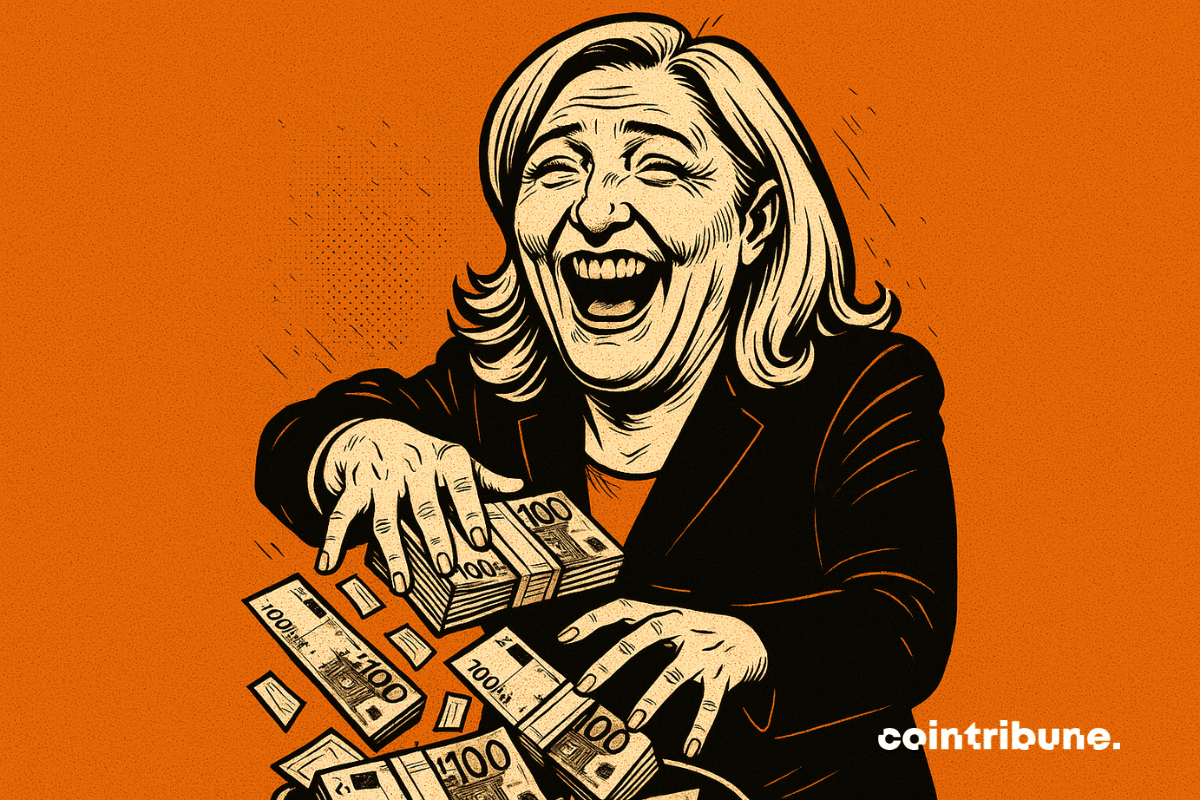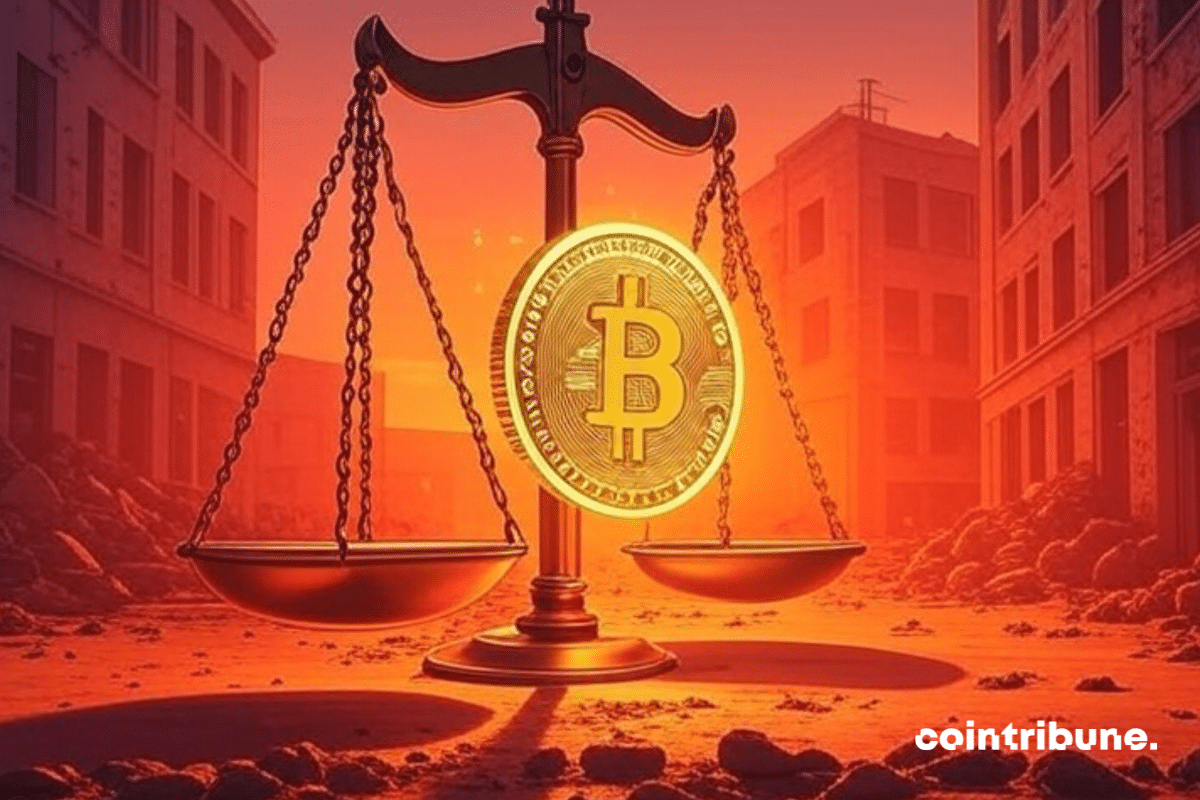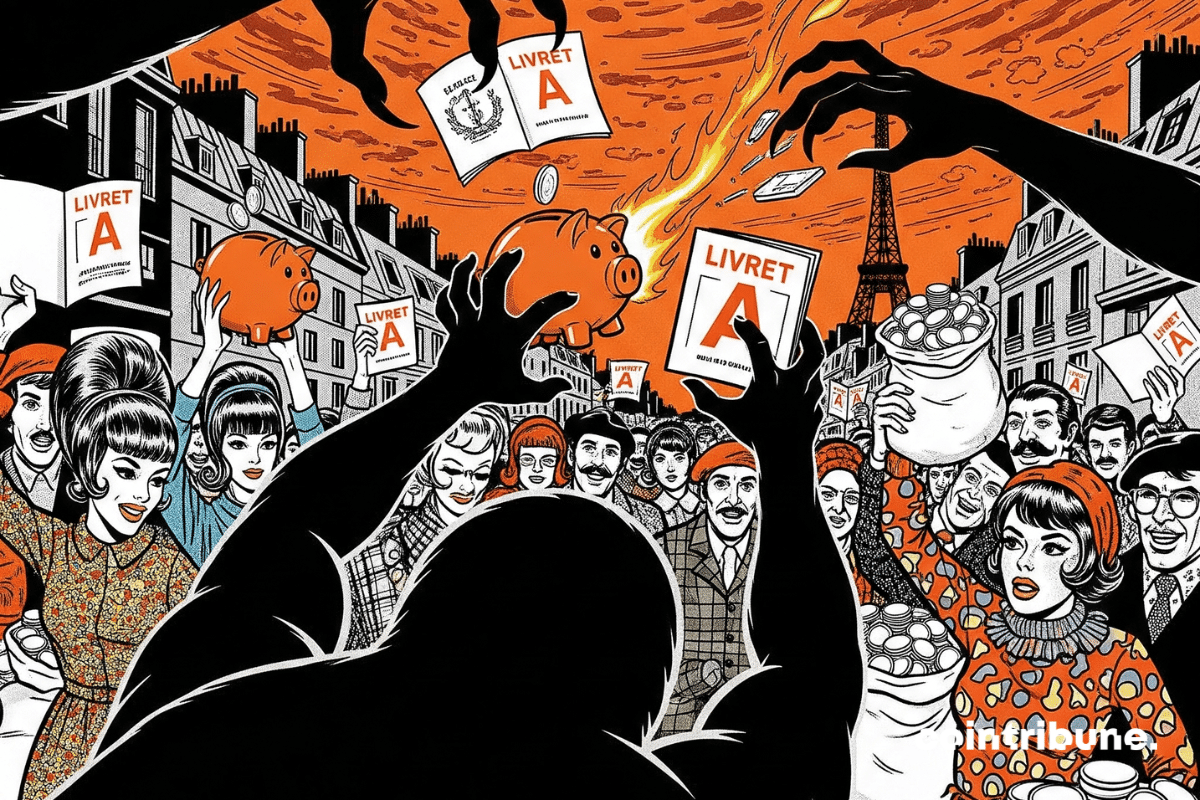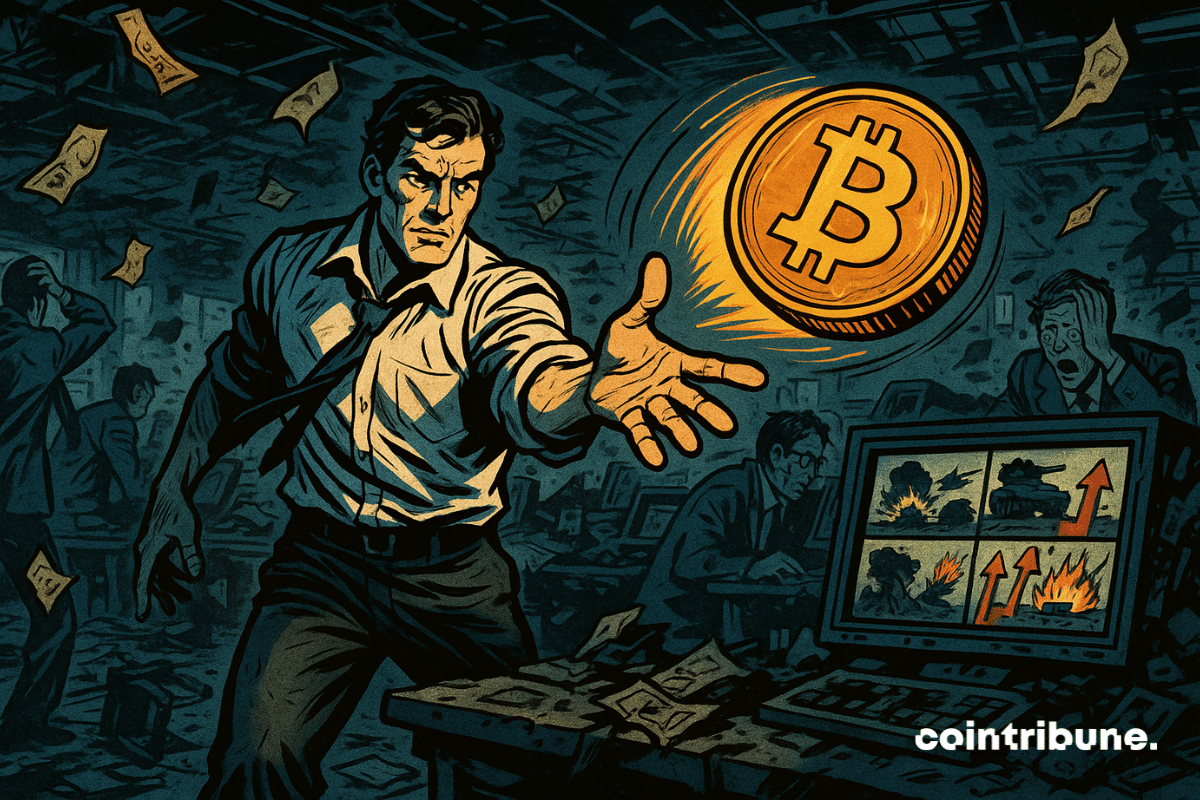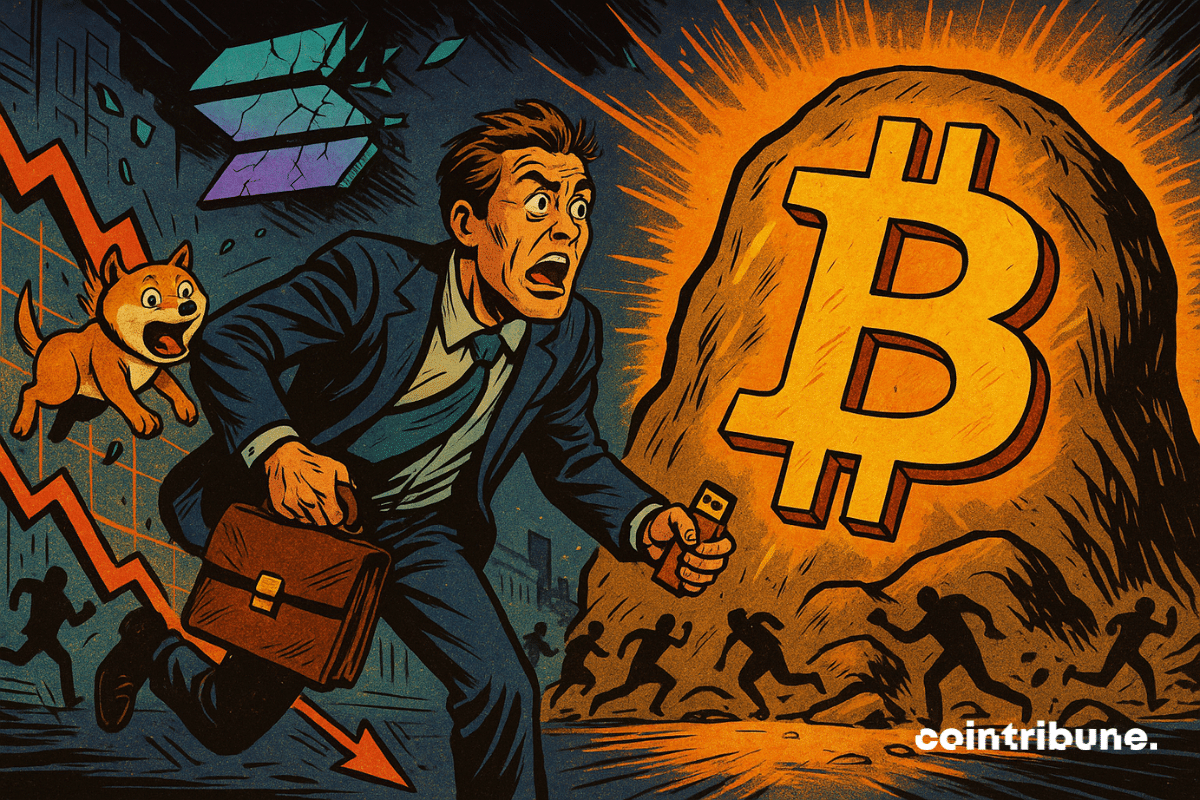Stablecoin adoption is rising across Africa as individuals and businesses search for faster cross-border payments and protection from rising prices. Speaking at the World Economic Forum in Davos, economist Vera Songwe said stablecoins are filling gaps left by costly remittance systems and weak local currencies. Growing usage is also drawing closer attention from regulators across the continent.
Inflation
Crash or simple pause? Bitcoin drops while gold rises. The refuge asset duel intensifies. Details here!
If we start looking at the price of bitcoin from the perspective of "adjustment," aren't we simply recreating the same system? Aren't we, by thinking in terms of seasonal adjustments, becoming the new central bankers?
Markets hate unpredictability. Yet, within a few days, their certainties collapsed. The probability of a rate cut by the Fed in December, previously the majority view, is now below 50%. This abrupt change of direction has revived tensions across all asset classes. In the crypto ecosystem, already severely tested by a corrective phase, this resurgence of uncertainty acts as a catalyst for volatility.
When crypto plays central banker, the Fed sweats under its suit. Stablecoins, hidden treasures, and plummeting rates: guess who really runs the world?
A prolonged U.S. government shutdown has created a rare information void just as financial markets seek clarity. Investors are awaiting the Federal Reserve’s next rate decision with limited insight, while lawmakers continue advancing cryptocurrency legislation despite widespread staffing delays.
A drop in inflation figures, and here come the traders again. Bitcoin rejoices, ETPs swell. Who said the crypto market lived only on rumors?
The US Department of Labor will publish inflation data on Friday despite the government shutdown. An unusual decision five days before the Fed's crucial interest rate decision. Crypto investors are holding their breath.
The minutes of the Fed published on October 8 confirm an expected but delicate monetary shift. While the rate cut is now underway, the extent of the move by the end of the year still divides the committee. In a context of slowing employment, contained inflation, and government paralysis, this shift weighs heavily on market expectations. For crypto investors, sensitive to monetary policy signals, every Fed hesitation becomes a factor of volatility.
The PCE inflation figures for the month of August, published this Friday, September 27, confirm apparent stability, with progress as expected. A key indicator for the Federal Reserve, the PCE remains above the target, while American consumption continues to surprise with its strength. In a context of monetary tension, these data maintain uncertainty about the future trajectory of interest rates.
The Federal Reserve has made its decision, but without certainty. According to Jerome Powell, no interest rate adjustment will be without consequences. While several central banks have started a cycle of rate cuts, the Fed chairman warns of a strategic deadlock. In a context where inflation remains resilient and employment wavers, every decision becomes risky. A strong signal sent to the markets closely watching every word from the Fed as a decisive monetary turning point approaches.
Economy: JPMorgan anticipates tensions on the Fed and integrates stablecoins without fearing for its deposits. We tell you more here!
Powell cuts timidly, Trump shouts louder than ever, and crypto cheers. In Washington, the FED lowers its arms, while Bitcoin and stablecoins revise their choreography.
Wednesday, bitcoin is at stake: between the Fed's boost, the 117,000 $ wall and hungry whales, guaranteed suspense for the crypto market star.
The latest US inflation figures reignite tensions in the financial markets, and the crypto sector is not immune to this nervousness. Stuck below the $3 mark, XRP struggles to define a clear trend. In a climate where every economic data fuels speculation about the Fed's monetary policy, Ripple's asset moves in a zone of uncertainty. Between hopes for a breakout and risks of correction, pressure is mounting around a threshold that has become strategic.
This Wednesday, the publication of a falling PPI for August immediately revived speculation around a Fed rate cut. Bitcoin gained 0.5% within the hour, driven by this signal perceived as favorable to monetary easing. Approaching the FOMC, investors now scrutinize every economic indicator, aware that the slightest variation can trigger a market repositioning.
The crypto market has just suffered one of its most significant setbacks of the year. In a few hours, bitcoin lost over $5,000, causing a widespread rout among other assets. Indeed, the release of a US Producer Price Index (PPI) well beyond expectations rekindles the specter of persistent inflation. This statistic, which surprises both Wall Street and the crypto ecosystem, upends monetary policy expectations and triggers a cascade of liquidations on leveraged positions, increasing downward pressure.
Trump draws a line under Bitcoin purchase by the United States. Bitcoiners will have to settle for legal seizures. A decision that causes crypto to plunge and leaves the economy in suspense.
American indices continued their rise, boosted by July inflation below forecasts. This macroeconomic signal propelled expectations of a Fed rate cut as early as September, now almost certain in investors' eyes. Driven by this momentum, optimism also spreads to the crypto market and Asian tech giants, drawing a global movement where macroeconomics, traditional finance, and DeFi advance together.
Larry Fink, CEO of BlackRock, recently published a revealing article in the Financial Times about his vision of "globalization 2.0." This new approach aims to direct citizens' savings towards investments in local infrastructure, under the guidance of asset managers like BlackRock.
The current global chaos is not a product of chance. According to a theory developed by historians Neil Howe and William Strauss, we are entering a destructive cycle that reshapes societies every 80 to 100 years. This major transformation could disrupt the global economy, financial markets, and redefine the geopolitical order as we know it.
Prices are rising in the United States, and it’s not a coincidence. Since Donald Trump's return to the White House, his aggressive trade policy is starting to weigh on the economy. The tariffs he has imposed are impacting household wallets, driving inflation up faster than expected.
While Trump dreams of tariffs and inflation recedes, Bitcoin rises... but how far? At $113,804, the oracles are stirring and the short-sellers are biting their nails.
Less fear around inflation: Bitcoin rises to $109,000, supported by calmer economic forecasts. More details here!
The debate on leaving the euro is resurfacing regularly in France. With new presidential elections set for 2027, a victory for the National Rally could lead to an exit from the euro. The French could very well come out of it ruined!
Inflation impoverishes billions of people while enriching a few million millionaires. Bitcoin is the antidote.
Finance: The savings rate of the French is the highest since 1979. We provide you with all the details in this article!
Despite some profit-taking, the bullish pressure remains strong. A new high awaits Bitcoin.
As the world enters a new zone of turbulence, with war in the Middle East, soaring energy prices, and monetary uncertainty, one anomaly persists: Bitcoin is not falling. It is rising. This is a striking paradox in a climate where traditional assets are wavering. Should this be seen as further proof of its transformation into a safe-haven asset? Or merely an illusion of stability fueled by market euphoria?
Crypto in free fall: Dogecoin is howling, Solana is wobbling, while Bitcoin is acting smug. A waltz of numbers and tweets... but who will laugh last?
